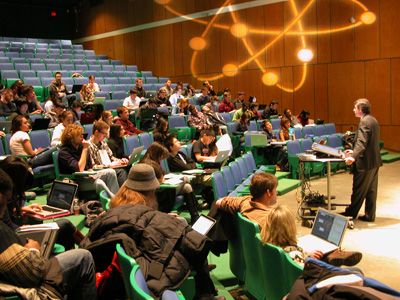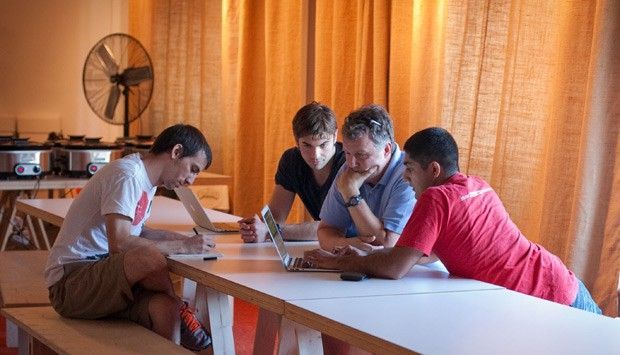Peer Learning is...
Defining Agency
Agency
_Agency _ _— _|ˈeɪdʒ(ə)nsi|
noun
Invocation of self-direction in learners_._
Success in education is determined by what the learner becomes, not what they study or what they can repeat. And in almost every case, Peer Learning environments address the learner's mindset and inspire them to believe in themselves.
People have goals that learning supports. Agency with learners is their ability to set and act towards achieving those goals, and to adapt their learning outcomes to their goals accordingly. Peer learning environments are conducive to supporting autonomous people who have different goals and take different actions.
Peer Learning firstly initiates the learner to become self-directed. This often happens through experiences that inspire, build skills, build confidence, and make the learner feel supported in adopting a new mindset. Ultimately, they choose to take command.

Once learners are actively setting goals and communicating them, the next phase accelerates this. Since learners now define, and specify what they need for their own learning journey, the education dynamic shifts from a teaching push by the educator, towards one where the learner defines the support they need to speed their progress. This inherently implies a shift in the role of the educator towards one of facilitation instead of direction.

Especially with emergent or fast-changing topics, and in cases where the learners haven't been selected based on a common level of experience, it's likely learners will often have useful experience to share that nobody else has, including the facilitator.
This requires a change in perspective on facilitating, where the facilitator takes a more neutral position and uses their experience to raise relevant questions to the person expressing their experience.
By putting the master learner temporarily into the position of the expert, more learners start self-directing, and their experience grows. A community dynamic can develop around them.
You can assess how an education program addresses Agency by these levels:
Level 0 : No agency. The learner's path is dictated completely by the program design.
Level 1 : Initiating. The learner is taken through various advancement levels of learning exercises until they want to specify how they would like to achieve learning outcomes.
Level 2 : Accelerating. Pull-based education - each learner has their own projects and applications which drive their learning goals. The entirety of the learning experience is delivered on demand. The learner sets their goals, and learning institution supports.
